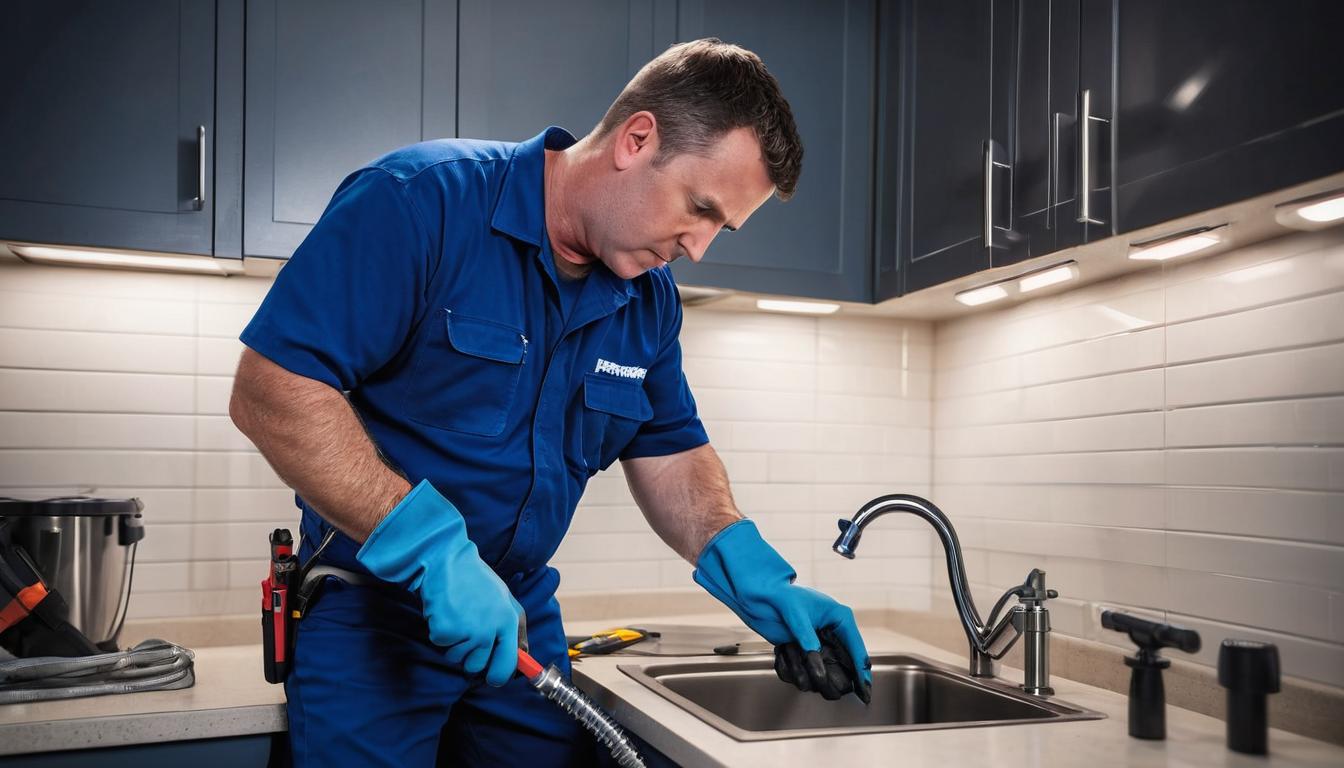Our Blog
Discover the world of plumbing through our plumbing technicians.

Essential Tips for Maintaining Your Kitchen Drains and Preventing Grease Blockages in Calgary
Maintaining your kitchen drains and preventing grease blockages is crucial for avoiding plumbing problems in your Calgary home. Kitchen sinks, when improperly maintained, can become prone to clogging due to grease and food particles.
Regular care and simple practices can help avoid expensive repairs and ensure your drains remain in top condition.
Common Causes of Kitchen Drain Blockages in Calgary Homes
How Grease and Food Waste Lead to Drain Clogs
Grease is one of the most common culprits of clogged kitchen drains in Calgary. When poured down the sink, grease solidifies as it cools, sticking to the walls of your pipes. Over time, this leads to significant blockages, especially when combined with food particles that get trapped in the grease.
The Impact of Hard Water on Kitchen Drains
In Calgary, hard water contains minerals like calcium and magnesium, which can form deposits inside your pipes. These deposits, known as limescale, narrow the pipe diameter and make it easier for grease and debris to accumulate.
The Role of Soap Scum in Kitchen Drain Blockages
Soap used in dishwashing often combines with hard water minerals to create soap scum. This sticky substance clings to the inside of your pipes, acting as a magnet for grease and food particles, which further worsens blockages.
How to Properly Maintain Your Kitchen Drains
Daily Habits to Prevent Kitchen Drain Clogs
Preventing clogs starts with daily habits. Avoid pouring grease, oils, or leftover food down the sink. Scrape plates into the trash and rinse them with cold water before placing them in the sink.
Using Drain Screens to Catch Food Particles
A simple yet effective solution is to install a drain screen or strainer over your sink. These inexpensive tools catch food scraps and prevent them from entering your plumbing system.
The Best Methods for Cleaning Kitchen Drains Regularly
For regular maintenance, flush your drains with hot water after washing dishes. You can also use a mixture of baking soda and vinegar once a month to break down buildup and keep your pipes clean and odor-free.

Grease Prevention and Proper Disposal in Calgary Homes
Why You Should Never Pour Grease Down the Drain
Pouring grease down the drain may seem convenient, but it’s one of the main causes of kitchen plumbing issues. Once grease cools, it solidifies and adheres to the pipe walls, leading to costly repairs.
How to Safely Dispose of Grease and Fats in Calgary Homes
Instead of using your drain, collect grease in a container, such as an empty tin or jar, and dispose of it in your household trash once it solidifies. This simple practice can save you from major plumbing issues.
The Impact of Grease on Your Kitchen Plumbing System
Grease not only clogs your drains but can also lead to sewer line blockages and backups. This creates a mess that’s costly to fix and can even impact the environment if untreated wastewater enters Calgary’s sewer system.
When to Call a Professional Plumber for Drain Maintenance
Signs That Your Kitchen Drain Needs Immediate Attention
If your kitchen drain is slow, emits unpleasant odors, or makes gurgling sounds, you may be dealing with a grease or debris blockage. Ignoring these signs could result in more severe plumbing problems.
How Professional Drain Cleaning Can Prevent Future Blockages
Professional plumbers use advanced tools like hydro-jetting and drain snakes to thoroughly clean your pipes, removing grease, food waste, and mineral buildup. This not only clears the immediate clog but also prevents future issues, saving you time and money in the long run.
FAQs
What causes kitchen drains to clog in Calgary homes?
Kitchen drains often clog due to grease buildup, food waste, soap scum, and mineral deposits from hard water. These substances accumulate over time, restricting water flow and causing blockages.
How can I prevent grease from clogging my kitchen drains?
To prevent grease clogs, avoid pouring grease and fats down the drain. Instead, collect them in a container and dispose of them in the trash. Use a drain strainer to catch food particles.
How often should I clean my kitchen drains?
You should clean your kitchen drains monthly using natural solutions like baking soda and vinegar or flush them with hot water after heavy use. Regular maintenance can prevent clogs and keep your drains odor-free.
Is it safe to use chemical drain cleaners for kitchen clogs?
Chemical drain cleaners can damage your plumbing and harm the environment. It’s better to use natural cleaning methods or call a professional plumber for stubborn clogs.
How do I know if I have a grease blockage in my kitchen drain?
Signs of a grease blockage include slow drainage, unpleasant smells, and strange noises like gurgling. If these symptoms occur, it’s time to address the issue with proper cleaning or professional help.

